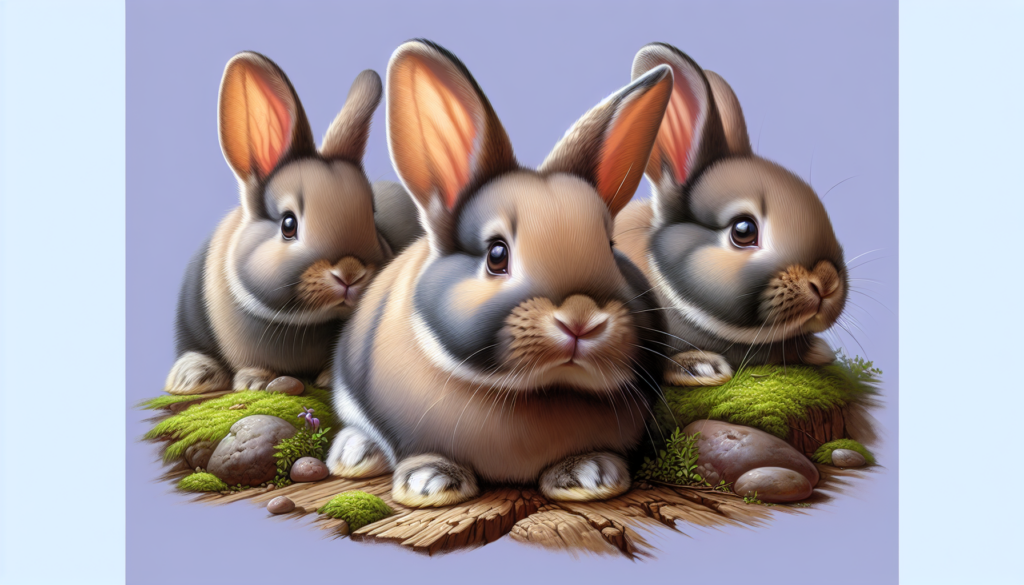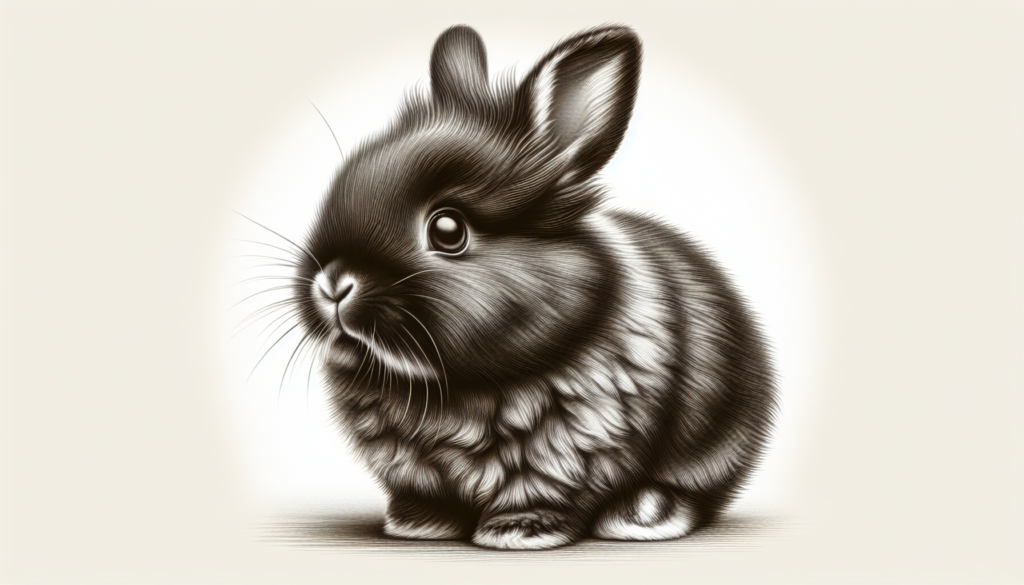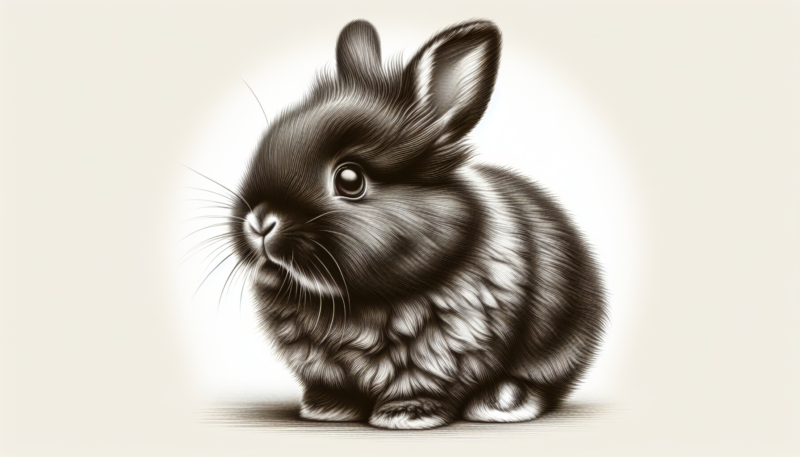Have you ever wondered about the lifespan of Netherland Dwarfs? These adorable and petite rabbits capture our hearts with their small size and energetic personalities. In this article, we will explore just how long these charming creatures live, shedding light on the average lifespan of Netherland Dwarfs and what factors can influence their longevity. Whether you already have a Netherland Dwarf or are considering adding one to your family, understanding their lifespan is key in providing them with the best care and ensuring a happy and healthy life for these pint-sized bundles of joy.

Characteristics of Netherland Dwarfs
Size
The Netherland Dwarf is one of the smallest rabbit breeds, typically weighing between 1.1 to 2.5 pounds when fully grown. They have a compact body structure with short legs and a rounded head, giving them an adorable and compact appearance.
Appearance
Netherland Dwarfs have a variety of coat colors and patterns, making them visually appealing pets. Their fur is dense and sleek, requiring minimal grooming. These rabbits have a short, neat coat and stand out with their expressive, round eyes.
Personality
Known for their friendly and sociable nature, Netherland Dwarfs make excellent pets. They often enjoy human company and are known to be affectionate and curious. These rabbits are also energetic and playful, making them an enjoyable companion and a great addition to any household.
Behavior
Netherland Dwarfs are generally well-behaved and easy to handle. They can be trained to use a litter box and can even learn simple tricks. However, due to their small size, it is important to handle them gently and provide them with a safe and secure environment to prevent any potential injuries.
Factors Affecting Lifespan
Genetics
Genetics plays a significant role in determining the lifespan of Netherland Dwarfs. Breeding practices can influence the health and longevity of these rabbits. Responsible breeders aim to select individuals with good genetics to improve overall health and minimize the risk of hereditary diseases.
Diet and Nutrition
Proper nutrition is crucial for the health and lifespan of Netherland Dwarfs. A balanced diet should consist of high-quality pellets, fresh vegetables, and limited amounts of fruit. Providing a variety of foods and ensuring an appropriate amount of dietary fiber is essential in preventing gastrointestinal issues and maintaining overall well-being.
Exercise and Activity
Regular exercise and mental stimulation are important for Netherland Dwarfs. They should have enough space to hop around, explore, and engage in playtime activities. Encouraging physical activity helps maintain a healthy weight, prevents obesity-related health issues, and promotes mental well-being.
Housing and Environment
Creating a safe and comfortable living space is vital for the well-being and longevity of Netherland Dwarfs. They should have a clean and spacious enclosure with areas for resting, hiding, and exercising. The environment should be free from temperature extremes, drafts, and excessive noise, providing a stress-free and secure habitat.
Average Lifespan of Netherland Dwarfs
Typical Lifespan
Netherland Dwarfs generally have a lifespan of 7 to 10 years. However, with the right care and attention, some rabbits have been known to live even longer. Individual genetics, lifestyle factors, and overall health contribute to the variation in lifespan within this breed.
Breed Variations
While the average lifespan is 7 to 10 years, it is essential to note that individual rabbits may have significant variations in lifespan. Factors such as genetic predispositions, diet, exercise, and living conditions may impact the overall lifespan of Netherland Dwarfs.
Health Issues
Netherland Dwarfs, like any other rabbit breed, are prone to certain health issues. Dental problems, gastrointestinal issues, respiratory conditions, and urinary problems are common in this breed. Regular veterinary care and proper diet can help prevent or manage these issues, ultimately contributing to a longer lifespan.
Impact of Neutering/Spaying
Neutering or spaying Netherland Dwarfs can have a positive impact on their overall lifespan. These procedures not only prevent unwanted pregnancies but also reduce the risk of certain reproductive system-related cancers and infections. Neutering or spaying can contribute to better health and an extended lifespan for these rabbits.
Caring for Netherland Dwarfs to Maximize Lifespan
Proper Diet and Nutrition
Providing a well-balanced and nutritious diet is crucial for maximizing the lifespan of Netherland Dwarfs. A diet rich in high-quality pellets, fresh vegetables, and limited fruits can support their overall health and prevent various health issues. Fresh water should always be readily available to keep them hydrated.
Regular Veterinary Care
Maintaining regular veterinary check-ups is essential for the overall well-being of Netherland Dwarfs. Vaccinations, parasite prevention, and routine examinations can help detect and address any health issues early on. Scheduled appointments with a rabbit-savvy veterinarian can ensure that all necessary health precautions are taken to maximize their lifespan.
Exercise and Mental Stimulation
Netherland Dwarfs are active and curious rabbits that require regular exercise and mental stimulation. Engaging them in activities such as interactive toys, obstacle courses, and supervised playtime can keep them physically fit and mentally engaged, promoting overall well-being and extending their lifespan.
Safe and Comfortable Living Space
Providing a safe and comfortable living space is crucial for the health and longevity of Netherland Dwarfs. Their enclosure should be spacious enough for hopping and exploring, with appropriate bedding, hiding spots, and toys. Ensuring a calm and stress-free environment can contribute to their overall well-being and lifespan.

Common Health Issues in Netherland Dwarfs
Dental Problems
Netherland Dwarfs are prone to dental problems, such as overgrown teeth and abscesses. Regularly examining their teeth and providing appropriate chew toys can help prevent these issues. A proper diet with sufficient fiber can also promote dental health.
Gastrointestinal Issues
Gastrointestinal problems, including gas, bloating, and gastrointestinal stasis, are common in Netherland Dwarfs. A high-fiber diet, regular exercise, and access to fresh water can help maintain a healthy digestive system and reduce the risk of these issues.
Respiratory Conditions
Netherland Dwarfs may be susceptible to respiratory conditions, including upper respiratory infections. Ensuring a clean and well-ventilated living space, free from irritants and drafts, can help minimize the risk of respiratory issues. Regular veterinary check-ups are also crucial for early detection and treatment.
Urinary Problems
Urinary issues, such as urinary tract infections and bladder stones, can affect Netherland Dwarfs. Providing them with a diet low in calcium and ensuring proper hydration can help prevent these problems. Regular veterinary care is essential in monitoring their urinary health and detecting any issues early on.
Warning Signs of Illness and Injury
Changes in Appetite or Thirst
A sudden change in appetite or thirst can be a warning sign of illness in Netherland Dwarfs. If your rabbit starts eating significantly less or drinking more or less water than usual, it is essential to seek veterinary attention.
Weight Loss or Gain
Unexplained weight loss or gain can indicate an underlying health issue in Netherland Dwarfs. Monitoring their weight and ensuring it remains stable can help identify any potential problems early on.
Lethargy or Unusual Behavior
Lethargy, decreased activity levels, or unusual behavior may indicate illness or discomfort in Netherland Dwarfs. If your rabbit seems unusually quiet, sluggish, or exhibits any other abnormal behavior, consult a veterinarian for a thorough examination.
Breathing Difficulties
Difficulty in breathing, wheezing, or any abnormal respiratory sounds should not be ignored, as they may indicate respiratory issues. Prompt veterinary care is necessary to address any potential breathing difficulties and prevent further complications.
Special Considerations for Aging Netherland Dwarfs
Adapting Living Space
As Netherland Dwarfs age, their mobility and energy levels may decrease. Adapting their living space to accommodate their changing needs is crucial. Providing ramps, cozy resting areas, and minimizing obstacles can help them navigate their living environment comfortably.
Adjusting Diet and Nutrition
As Netherland Dwarfs age, their dietary needs may change. Consulting with a veterinarian to adjust their diet and provide appropriate nutrition for their senior years can support their overall health and well-being.
Managing Arthritis and Mobility
Arthritis is a common issue in aging rabbits, including Netherland Dwarfs. Monitoring their mobility and providing appropriate pain management, such as anti-inflammatory medications and joint supplements, can help manage arthritis and improve their quality of life.
Providing Mental Stimulation and Companionship
As Netherland Dwarfs age, mental stimulation and companionship become even more important. Engaging them in interactive toys, gentle playtime, and providing ample social interaction with their human companions can help prevent loneliness and keep their minds active.
Improving Lifespan through Breeding Practices
Selective Breeding and Genetic Testing
Responsible breeders prioritize selective breeding and genetic testing to improve the lifespan and overall health of Netherland Dwarfs. Regular health screenings and genetic testing can help identify and minimize the risk of hereditary diseases, ensuring healthier and longer-lived rabbits.
Avoiding Inbreeding
Inbreeding can significantly impact the overall health and lifespan of Netherland Dwarfs. Responsible breeders make a conscious effort to avoid inbreeding to maintain genetic diversity and prevent the transmission of harmful genetic traits.
Minimizing Known Genetic Disorders
Through careful breeding practices, breeders aim to minimize the occurrence of known genetic disorders within the Netherland Dwarf population. By selecting breeding pairs with good health and genetic backgrounds, breeders can work towards minimizing the prevalence of specific health issues.
Breeding for Overall Health and Longevity
Breeders focused on maximizing the lifespan of Netherland Dwarfs prioritize breeding for overall health and longevity. By selecting individuals with good genetics, sound physical traits, and excellent temperaments, breeders contribute to a healthier and longer-lived population.
Understanding Loss and Grief
End-of-Life Care and Decision-Making
As Netherland Dwarfs age, owners may face difficult decisions regarding end-of-life care. Consulting with a veterinarian specializing in rabbit care can provide guidance and support in making compassionate decisions based on the rabbit’s quality of life.
Supporting Children in Understanding Death
For families with children, the loss of a beloved Netherland Dwarf can be challenging. It is essential to provide age-appropriate explanations and support children in understanding and coping with the concept of death. Encouraging open and honest conversations can help them process their emotions.
Coping with the Loss of a Beloved Pet
Losing a cherished pet, such as a Netherland Dwarf, can be profoundly difficult. It is important to acknowledge and allow oneself to grieve. Seeking support from family, friends, or even online communities can provide comfort during the grieving process.
Finding Support and Resources
If coping with the loss of a Netherland Dwarf becomes overwhelming, seeking support from grief counseling services or pet loss support groups can be beneficial. These resources are designed to provide comfort and understanding during the grieving period.
Conclusion
The lifespan of Netherland Dwarfs can vary depending on various factors, including genetics, diet, exercise, and overall care. By providing a healthy diet, regular veterinary care, a stimulating living environment, and a loving companionship, owners can maximize the lifespan of their Netherland Dwarfs. Understanding their specific health needs, being aware of potential health issues, and promptly addressing any warning signs can contribute to a long and fulfilling life for these adorable rabbits. Remember, the key to maximizing their lifespan is to approach their care with love, attentiveness, and a commitment to their well-being.
